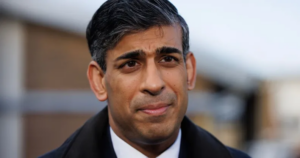The Supreme Court is set to hear a landmark case involving transgender rights, which has ignited a debate about the place of LGBTQ+ people in society. The case, known as B.P.J., involves a transgender student who has been barred from using the bathroom that corresponds with his gender identity. While the outcome of the case is uncertain, it has already revealed a deep divide in society over LGBTQ+ rights.
The case has also highlighted the influence of the Federalist Society, a powerful conservative legal organization. The five most conservative members of the Supreme Court are all regular speakers at Federalist Society events, and the organization played a key role in shaping former President Trump‘s judicial appointments. However, the organization’s gatherings often dwell on the insecurities of its members, and their sense of being unwelcome in their own profession.
This sense of insecurity was on full display when conservative judge Stuart Kyle Duncan appeared on Stanford’s campus to speak on a panel organized by the Federalist Society. Duncan, who has a history of opposing LGBTQ+ rights, was met with protests and heckling from students who objected to his presence. The incident was captured on video and posted online by conservative activist Ed Whelan, and it quickly went viral.
Look, if you think Kyle Duncan is the "adult" in this exchange with a Stanford Law student, let alone a guy sincerely trying to have a civil dialogue with people with whom he disagrees, and definitely not trying to just get blurbed on Fox News primteime,🤷♂️ pic.twitter.com/ti5mMjMnYc
— Jay Willis (@jaywillis) March 12, 2023
The video showed Stanford associate dean Tirien Steinbach addressing the audience at Duncan’s event after Duncan requested that a law school administrator intervene to quiet the protesting students. Steinbach defended the university’s position that Duncan should be allowed to speak, but also explained why his presence was hurtful to many in the community. She implied that the benefit of inviting Duncan to speak was not worth the divisions it created on campus, asking whether “the juice [is] worth the squeeze.”
The incident at Stanford highlights the broader battle for LGBTQ+ rights, which has been playing out across the country in recent years. LGBTQ+ people have made significant gains in legal protections, such as the legalization of same-sex marriage and the passage of anti-discrimination laws. However, these gains have also sparked a backlash from conservatives who fear that they are being excluded from institutions like universities.
This fear is at the heart of the B.P.J. case, which is seen as a test of whether transgender people will be treated equally under the law. The case has been brought up by a transgender student who was denied access to the bathroom that corresponds with his gender identity. The student argues that this denial violates his constitutional rights to equal protection and due process.
The case has already attracted national attention, with many LGBTQ+ advocates arguing that it represents a crucial moment in the fight for transgender rights. However, conservative groups have also rallied around the case, arguing that allowing transgender people to use the bathroom of their choice will lead to chaos and danger.
The outcome of the case is uncertain, but its implications are clear. If the Supreme Court rules in favor of the student, it will be a significant victory for transgender rights and will cement the legal recognition of gender identity. However, if the Court rules against the student, it will be a devastating blow to transgender people and will reinforce the idea that they are second-class citizens.
Ultimately, the B.P.J. case is a reflection of the broader battle for LGBTQ+ rights, which is still being fought on many fronts. While progress has been made, there is still much work to be done to ensure that LGBTQ+ people are treated with dignity and respect. The outcome of the case will be a crucial moment in this ongoing struggle, and will have implications for years to come.
Author























